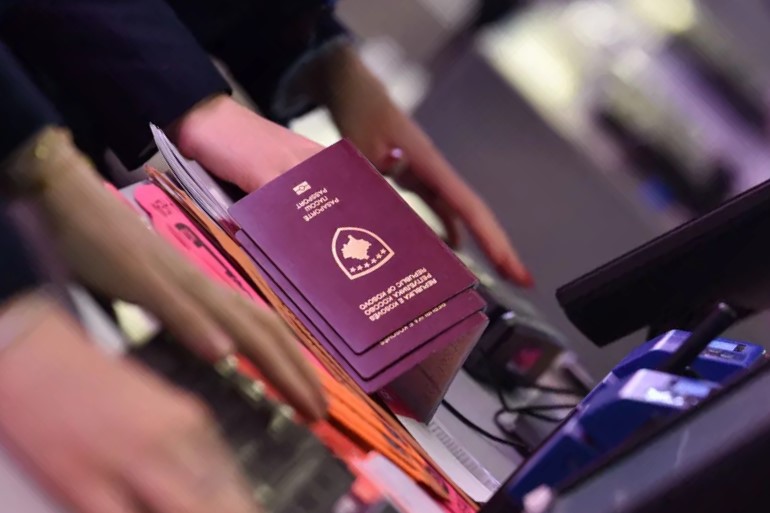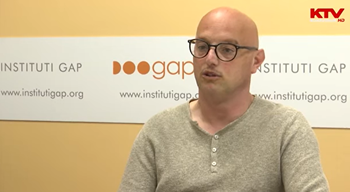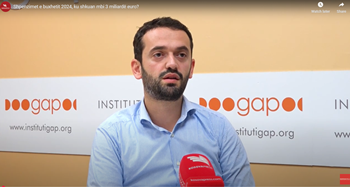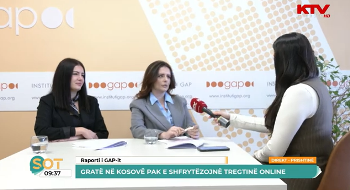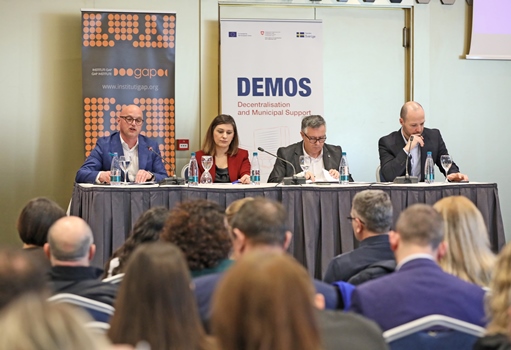Business Profiles: Entrepreneurship of Women and Ethnic Minorities in Kosovo
20/09/2023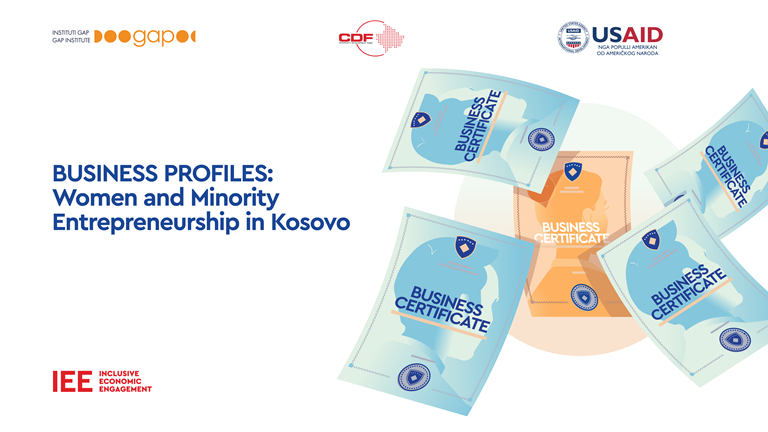
Today, GAP Institute published the research report on "Business Profiles: Entrepreneurship of Women and Ethnic Minorities in Kosovo", supported by USAID through Inclusive Economic Engagement Activity, a partnership with CDF. This report identifies the profiles of women-owned and minority-owned businesses, analyzing their presence in Kosovo by business size, geographic location and the economic sector in which they operate. Moreover, it analyzes the lifespan of women-owned businesses compared to the majority men-owned.
In total, 96,995 businesses were analyzed out of 227,759 total businesses registered in Kosovo (from 2000 to March 2023). Of these, 78.7% are owned by men, 18% are owned by women, 2.3% are co-owned by at least one woman, while for another 1% the gender of the owner is unknown. The report shows that micro, small and medium businesses make up 99% of the total number of businesses owned by women in Kosovo. Out of the analyzed businesses, 5,253 of them are owned by ethnic minority individuals in Kosovo; 30% by Serbs, 28% by Turks, 10.5% by Bosniaks, 2.7% by Gorans, 2% by Ashkali, 1.7% by Roma, 1.7% by Egyptians, 0.1% by Montenegrins, while 22% of them are not categorized. Of the total number of businesses owned by ethnic minorities, 79% are owned by men and 21% are owned by women.
Additionally, there are 33,003 unregistered businesses in Kosovo (from 2000 to March 2023). Out of these, 64% are owned by men, 12% are owned by women, 0.3% are owned by at least one woman, and for 23.7% of businesses, the gender of the owners is unknown. The analysis of 3,801 deregistered women-owned businesses suggests that the average lifespan for women-owned businesses is 4.36 years, which is shorter than the average lifespan of 8.1 years for men-owned businesses. The women-owned businesses with the lowest average lifespan were operating in the sectors such as public administration and defense, compulsory social security (2 years); agriculture, forestry and fishing (2.32 years); and real estate activities (2.33). The women-owned businesses with the highest lifespan were operating in the sectors: wholesale and retail trade (6.71 years), and transportation and storage (6.53 years).
Based on the findings of the report, GAP recommends that the Government of Kosovo provides a cohesive definition of what is considered an "active business" and provide mechanisms for the collection of reliable data in order to avoid data discrepancies, as in the case where the figures provided from Kosovo Business Registration Agency, Kosovo Tax Administration and Kosovo Agency of Statistics did not match. Understanding the landscape and profiles of women-owned and minority-owned businesses can help the government and other stakeholders to design and implement policies and programs that support these categories adequately.
Also, the Government of Kosovo together with the Agency for Gender Equality should actively monitor the institutions in collecting and keeping gender-disagregated data and impose stronger sanctions on those who do not respect the Law on Gender Equality.
You can read the full report by clicking HERE.
For serbain version please write at: info@institutigap.org





